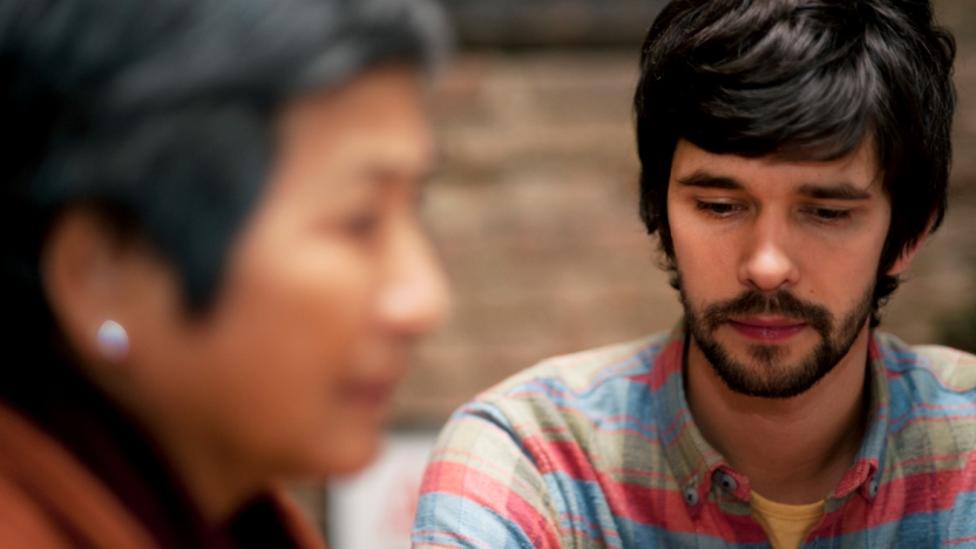Language is a wonderful thing. We use it to communicate, to impart knowledge and engage intellectually with other people and ideas. However, when it comes to expressing the deepest, most complex and intimate of emotions, language is futile. Hong Khaou’s Lilting is an exploration of this, and begs the question: how do we overcome it?
Junn (Cheng Pei-pei) is a recently bereaved mother, living in a care home in London. When Richard (Ben Wishaw) – her late son’s boyfriend – comes to visit, they slowly attempt to build a relationship. Junn doesn’t speak English, nor does she know her son Kai (Andrew Leung) was gay. Richard employs a translator (Naomi Christie) in an attempt to bridge the gaps.
Flashbacks are woven through scenes of the present, giving a rich depth to the subtext of the characters. The performances are strong and measured throughout. Grief hangs over every scene, as relentless and unavoidable as the characters’ own pain, and gives a melancholic tone to the film.
While the structure and plot of the film is simple, it manages to embed sophisticated ideas throughout. Persian poet Rumi stated that “words are a pretext. It is the inner bond that draws one person to another, not words.” In Lilting, the characters struggle to form a connection, despite the use of the translator, because they feel they can’t be honest and it is only when they are that things begin to change. The language barrier they perceive is, in effect, the same obstacle that prevents both mother and lover from closure and augments the process of grieving. Khaou handles this delicately: the film is unassuming and almost fragile, suggesting that sometimes it is the darkest parts of our soul that are the most beautiful.
